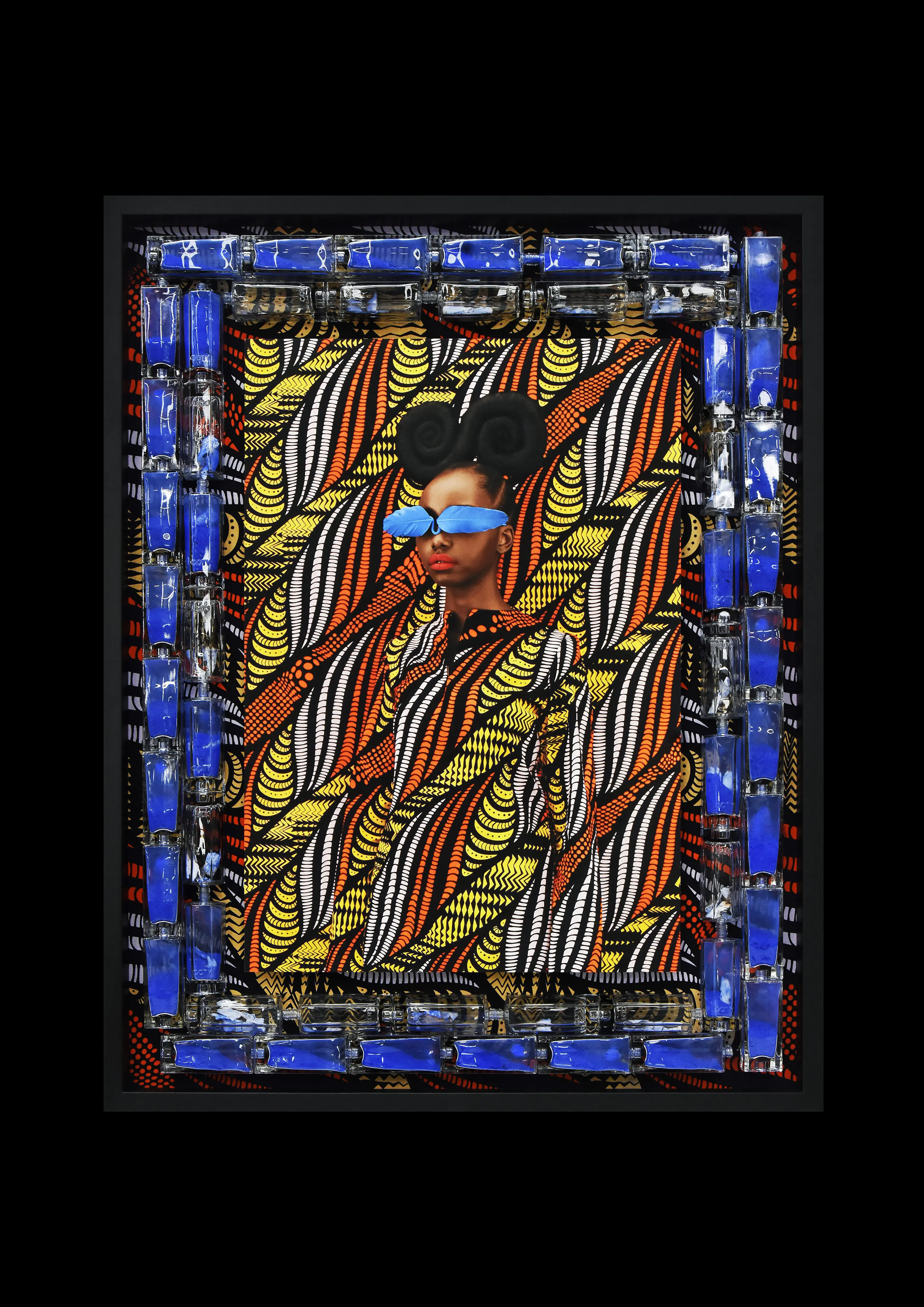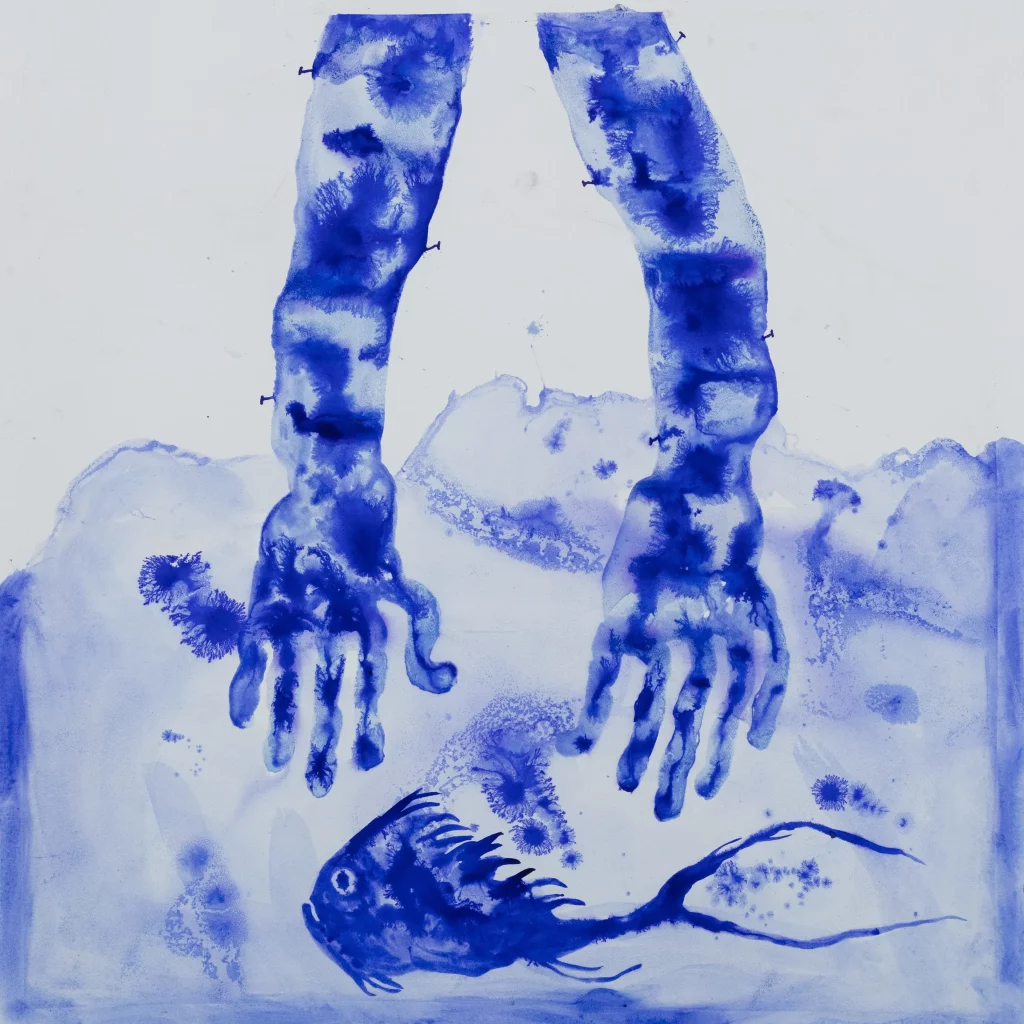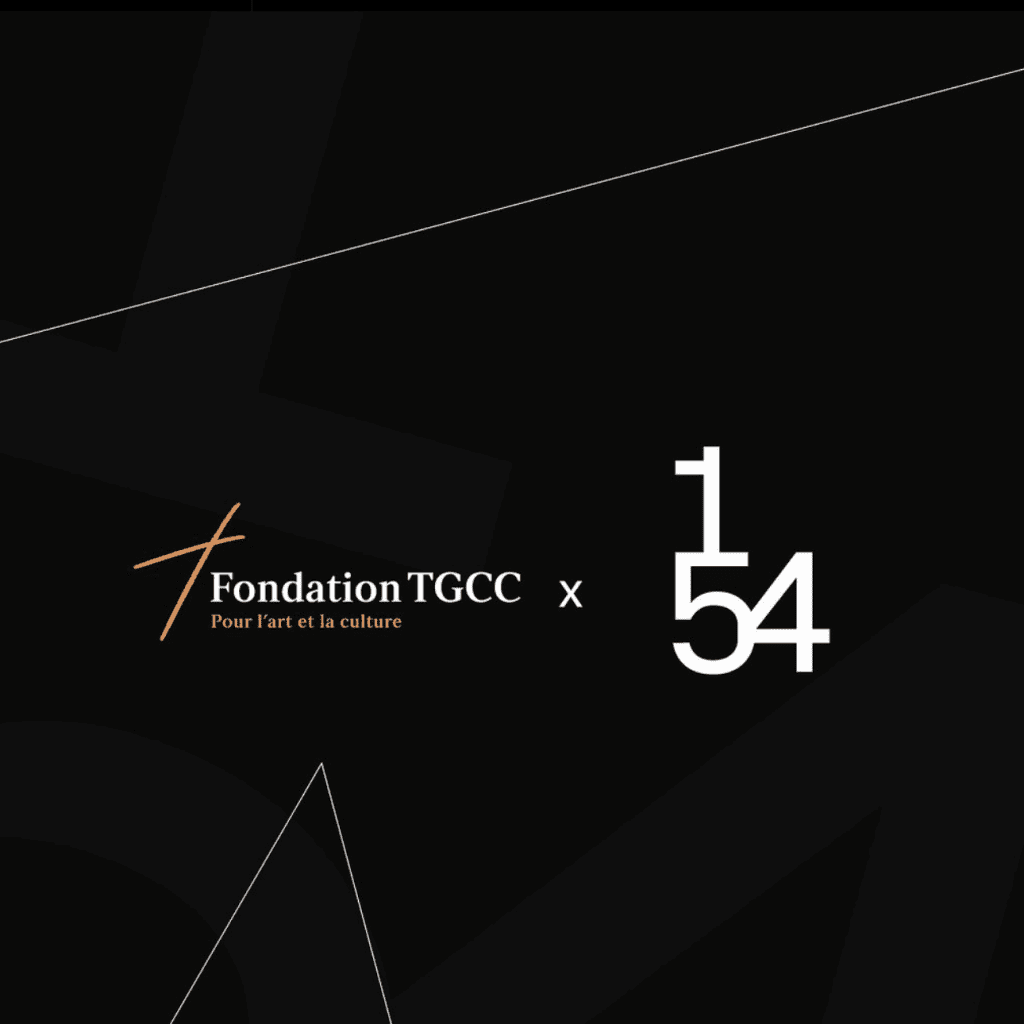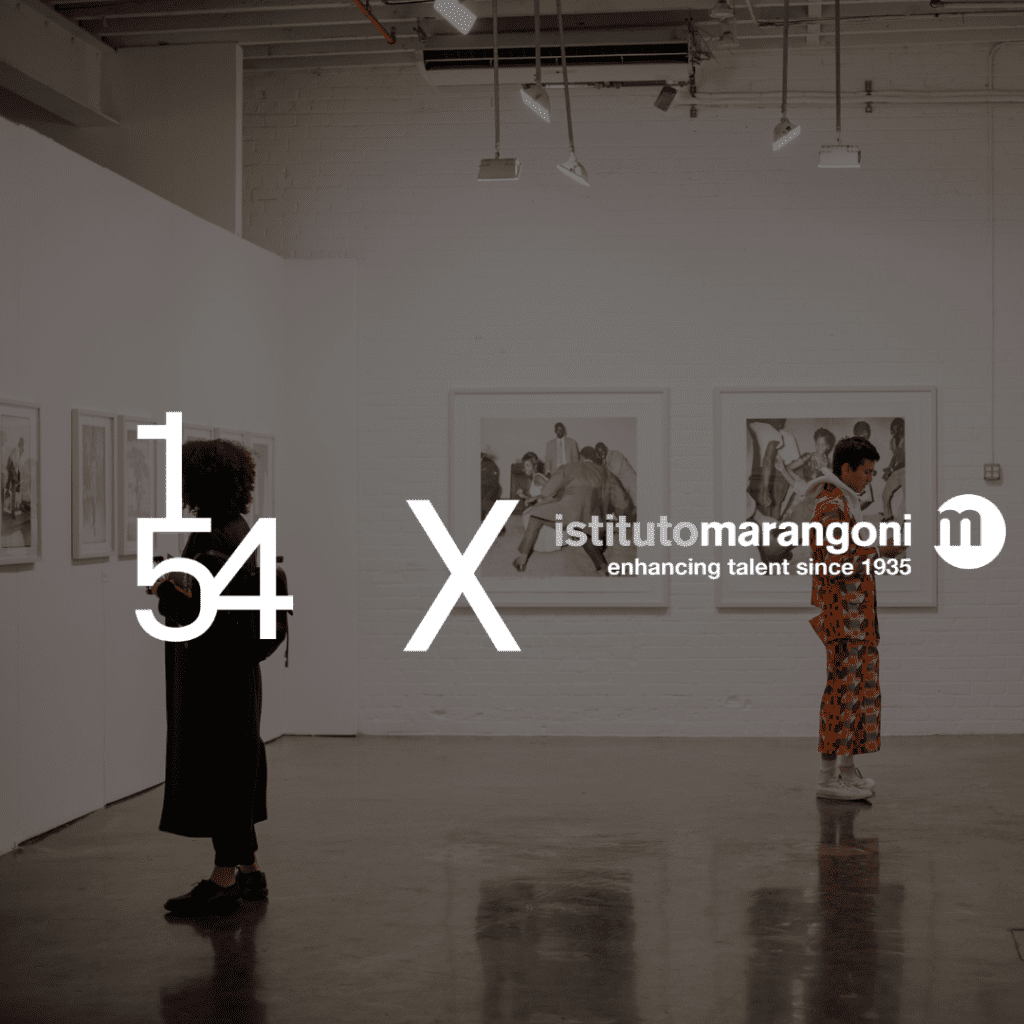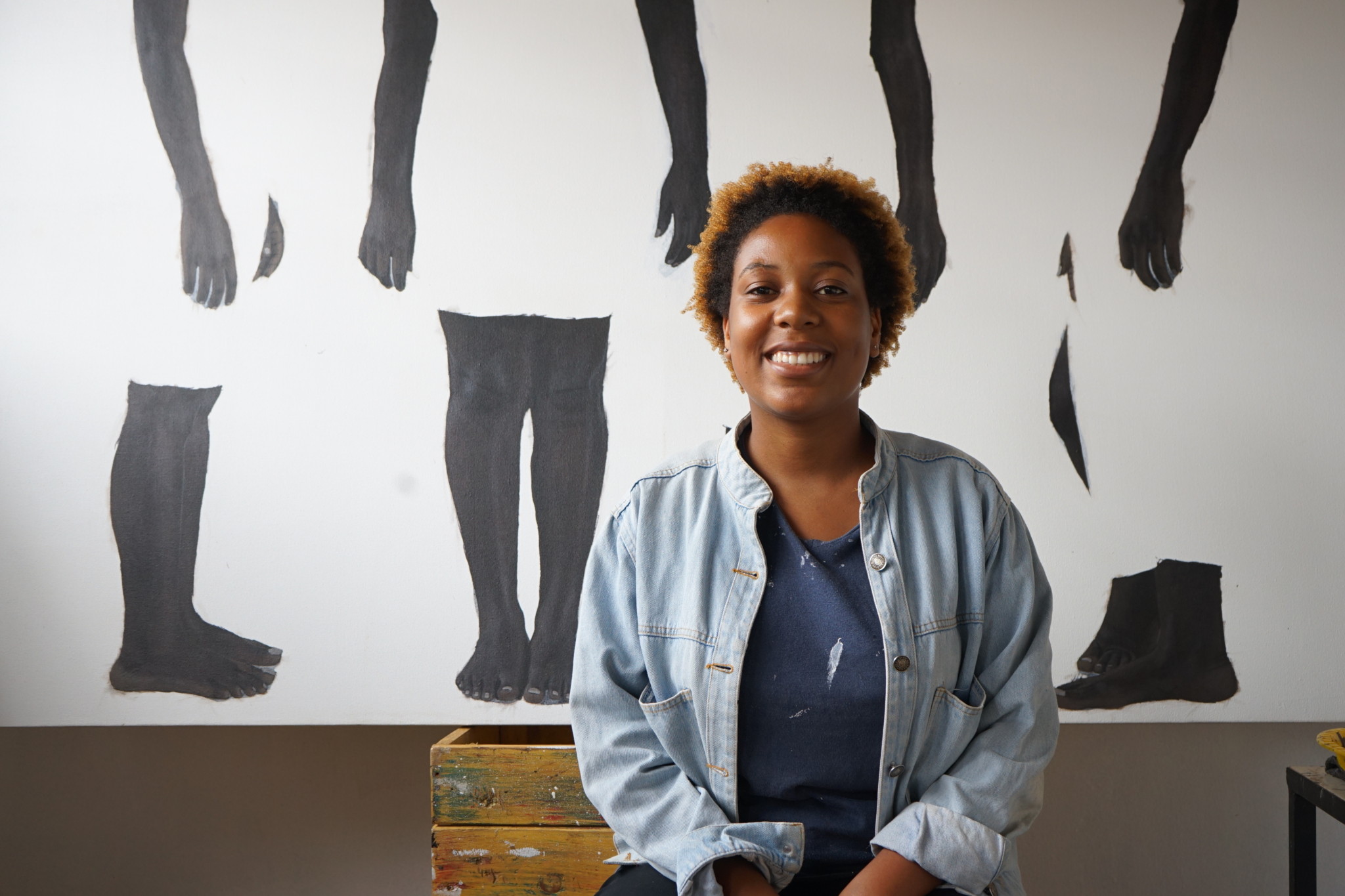
1-54 Contemporary African Art Fair is collaborating with Artskop3437 for a series of interviews with artists presented at the New York edition of the fair, which is held exclusively online throughout the month of May. In light of the current pandemic, Artskop3437 spoke to Sungi Mlengeya to find out more about her work and practice – especially during these trying times. Tanzanian artist Sungi Mlengeya works primarily with acrylic paint on canvas, where her subjects vary between self-discovery and empowerment – specifically in relation to black women. Sungi sheds a light on their stories; their journeys, struggles, accomplishments and relationships, navigating, too, her own lived experiences as a black woman.

Artskop3437: Your works focus primarily on the lives of black women, specifically on the “ties between women and the roles unity, support and friendship have in re-constructing their position in society”. Could you perhaps expand on this – how do these ‘notions’ inform women’s societal standing?
Sungi Mlengeya: I know how important it is to be close to people who share the same views as I do, or – more importantly – people who inspire me.
If people believe in a certain way of life religiously because that is what was passed on to them, without having any instinctive insights nor influence of a person who thinks differently and questions these practices, they will continue to practice that way of life without question and also pass it on to others – it is difficult to change.
So, when a person in a community is brave enough to question norms, and is backed up by likeminded people and they inspire others to think differently, it becomes easier to achieve movement towards a better standing, through their unified voice.
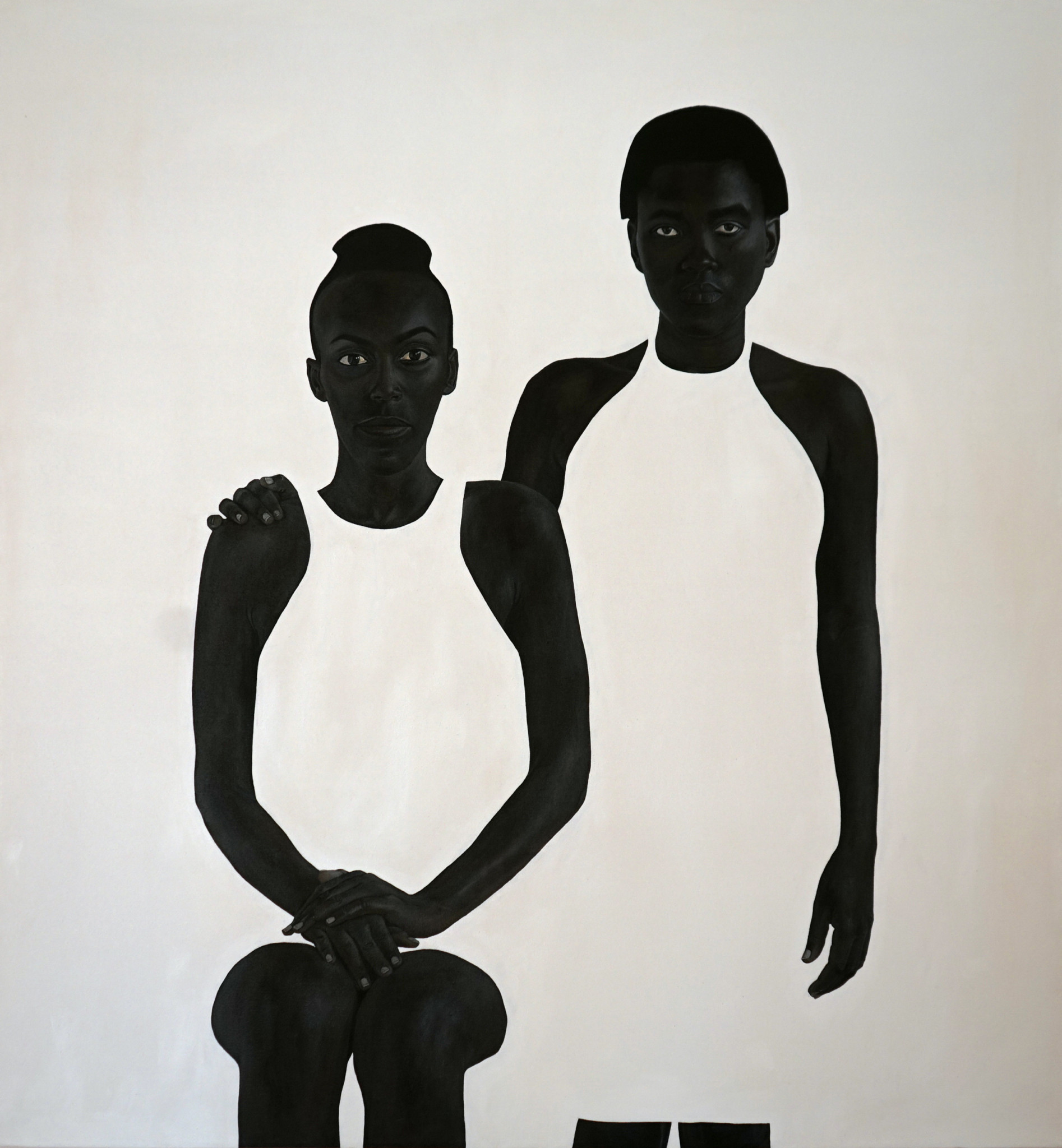
Working in acrylic paint on canvas, you explore ‘space’ in a minimalistic manner. What is your thinking behind this, and how does it relate to your focus on black women’s lives?
I stumbled into the minimalist space in one of the earliest paintings I made, and I remember how free I felt knowing that I could choose to paint or leave out anything I wanted, and that I could still be bold by being simple. Using negative space makes me focus more on my subjects, and the high contrast it creates makes it difficult not to pay attention to them.
For the longest time, black women have been associated with hardship and suffering. In my paintings, they rise above all this and become just themselves, giving them the focus that they deserve to be glorified for who they are. The white space becomes a place where these women can be their true and free selves without distraction.
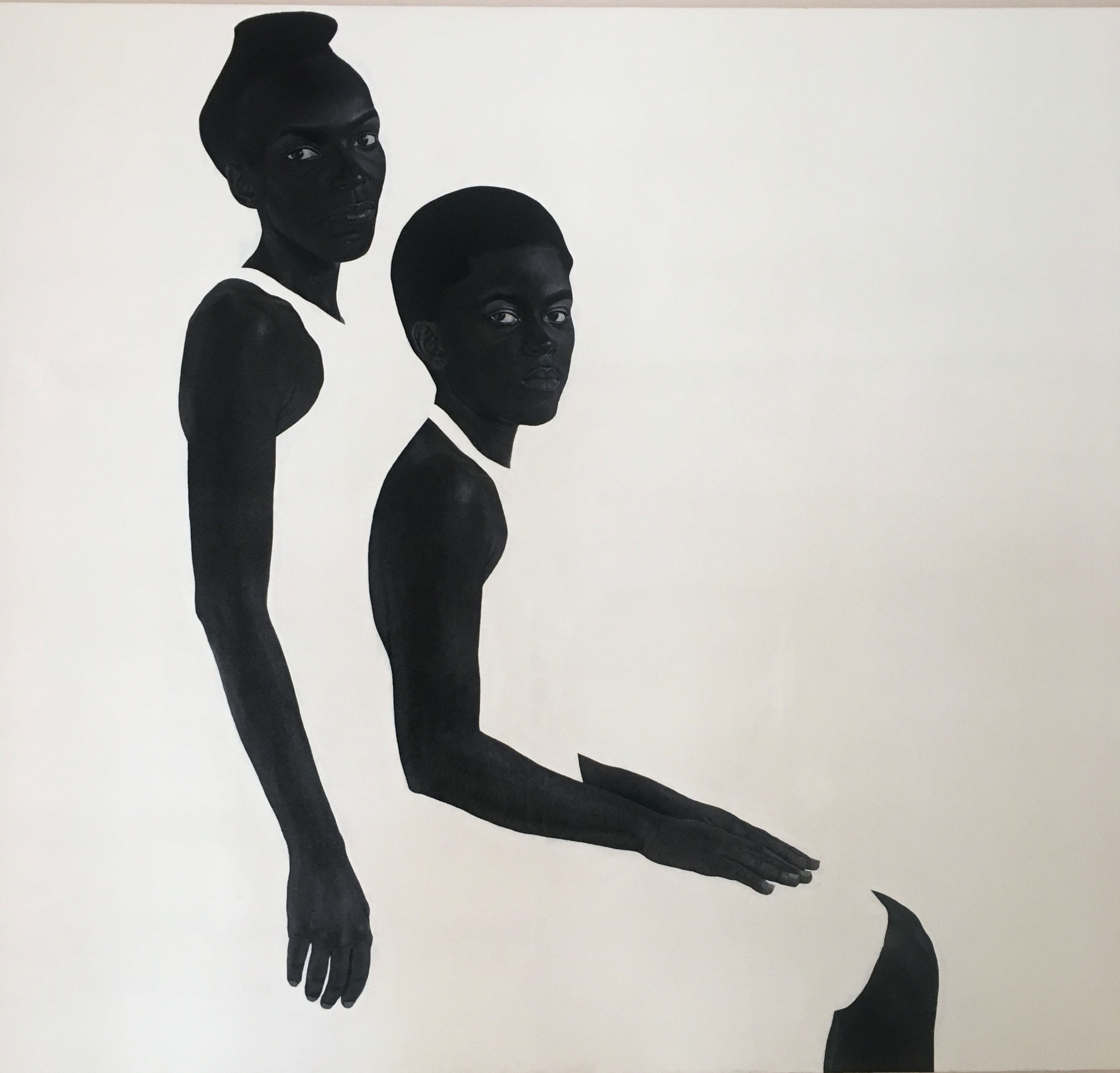
Your body of work, titled ‘Optimism’ and which was recently exhibited at the Investec Cape Town Art Fair in Cape Town, South Africa, focused on the notion of hope and remaining optimistic. Now, as the entire world finds ourselves in a space of immense uncertainty due to the spread of COVID-19 – would you say that this body of work – or perhaps your work overall – has taken on a whole new meaning?
In these uncertain times, my paintings carry the same meaning, stronger now more than ever: which is to remain strong and optimistic and continue to work towards achieving our desired state – being able to get back to the everyday lives we chose.
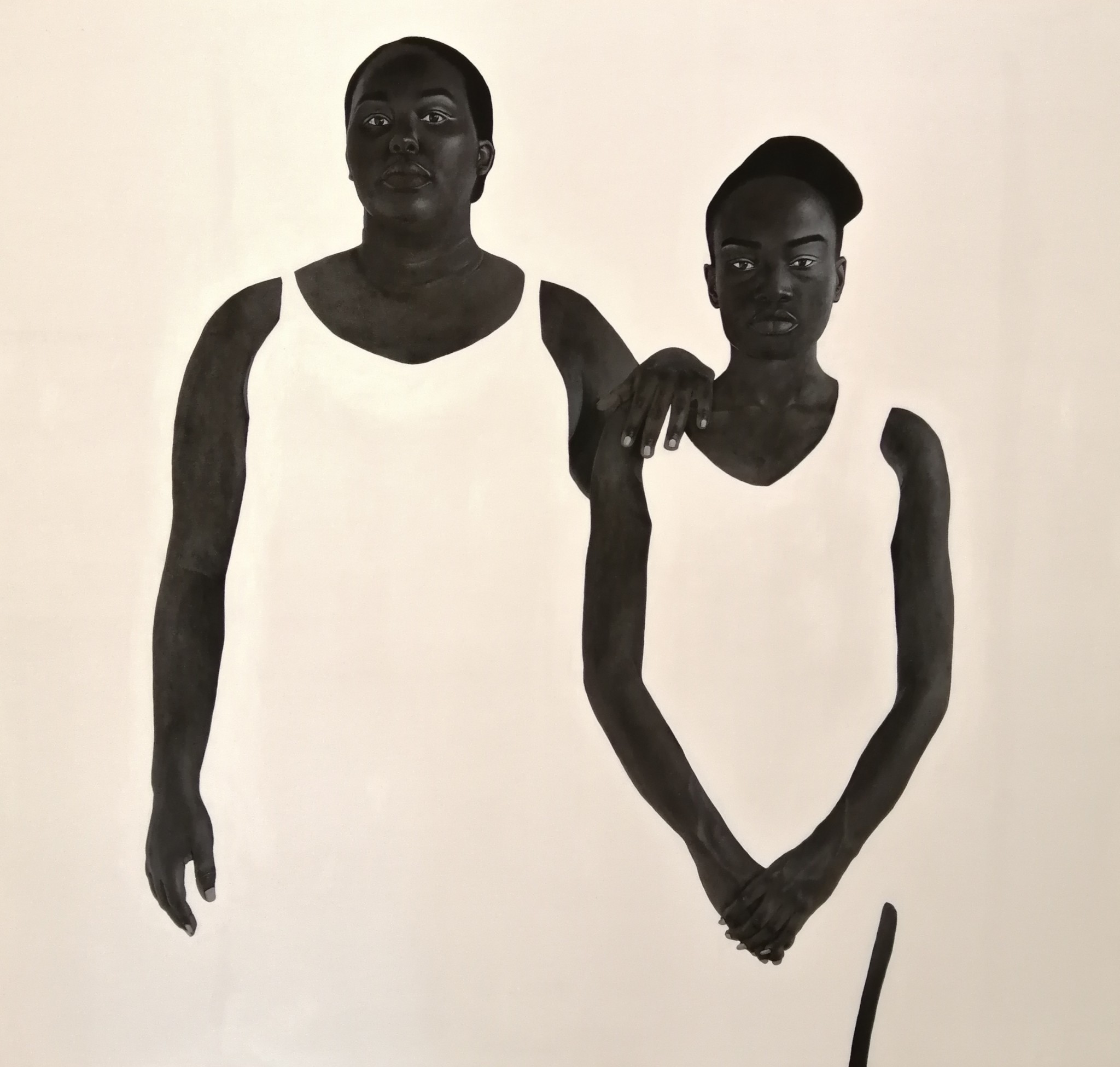
In exploring ‘space’ in your work, you’ve mentioned that this space represents “a place of calm, free and detached from social norms and restrictions, real and imagined, that have altered complete liberty”. With the current limit of both movement and space – a complete alteration of our physical understanding of liberty – how are you navigating this concept within your work?
The space in my work refers to a place that we are longing for. It refers to a freedom of movement and space that we are currently missing – and so can be included in this state that is desired.
Although this freedom can only be achieved in the future, we are doing what we need to do today to achieve it tomorrow. One of the things I’ve come to learn is that there are certain freedoms that have to be sacrificed in the short term so that they can be enjoyed more sustainably in the long term.
The space referred to in my work could therefore also be a place of action to include things that are being done now for the future, that is sacrificing our freedom of movement and space so that we can continue to enjoy them later, for longer.
Lastly – how has Tanzania responded to the pandemic, and in turn, how has this response affected your practice? Could you give us an idea of what it’s currently like to be a practicing artist, living and working under some form of ‘lockdown’?
The Tanzanian government has closed schools and other educational institutions, and restricted unnecessary public gatherings, but I have been in Uganda during this time and there is more strict lockdown here. I still paint everyday so despite the absence of social life, my routine has not been heavily affected. I’m grateful that I can still create.
____________________
Interview by Ellen Agnew
Ellen Agnew is a freelance writer, living and working in Cape Town South Africa. She collaborates with Artskop3437 for diverse specific projects.
Artskop3437 is a space dedicated to proposing a place to discover, understand, consider Africa, global and plural though its creative arts. Artskop3437 works via a media, a database and an art collecting space.

